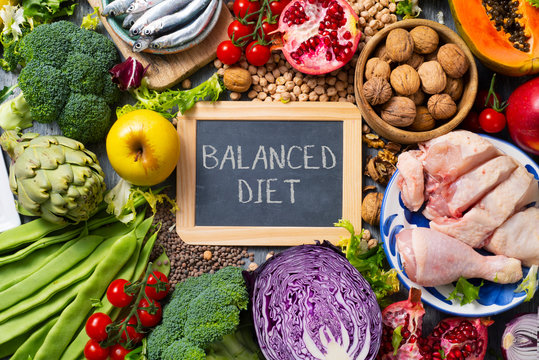
Women's health and well-being are crucial aspects of overall wellness. From physical to emotional, mental, and spiritual well-being, taking care of oneself is essential for leading a fulfilling life. In this article, we will explore various aspects of women's health and provide tips and strategies to boost overall well-being.
Physical Well-being
Physical well-being is a cornerstone of women's health. Regular exercise plays a vital role in maintaining physical health and overall wellness. Physical activity not only strengthens the body but also has numerous benefits for mental health. Finding the right exercise routine can make a significant difference in how women feel on a day-to-day basis.
Benefits of Exercise for Physical Health
Exercise can improve cardiovascular health, strengthen bones and muscles, and help manage weight. Additionally, physical activity releases endorphins, which are known as "feel-good" hormones that can boost mood and reduce stress and anxiety.
Types of Exercises Suitable for Women
Women can engage in a variety of exercises, including cardio, strength training, yoga, and Pilates. Each type of exercise offers unique benefits, so it's essential to incorporate a mix of activities into your routine.
Tips for Incorporating Exercise into Daily Routine
Finding time to exercise can be challenging, but it's essential to prioritize physical activity. Whether it's taking a brisk walk during lunch breaks, joining fitness classes, or working out at home, making exercise a regular part of your day can have a significant impact on your overall well-being.

Nutritional Well-being
A balanced diet is crucial for women's health and well-being. Proper nutrition provides the body with essential nutrients that support overall health and vitality. By fueling your body with the right foods, you can boost energy levels, improve digestion, and enhance your overall well-being.
Nutrients Essential for Women's Health
Women require specific nutrients such as calcium, iron, folic acid, and omega-3 fatty acids to support reproductive health, bone health, and cognitive function. Incorporating these nutrients into your diet can help prevent deficiencies and promote overall wellness.
Foods to Include in a Healthy Diet
A healthy diet should consist of a variety of fruits, vegetables, whole grains, lean proteins, and healthy fats. Foods like leafy greens, berries, nuts, fish, and legumes are rich in essential nutrients and can support women's health.
Tips for Maintaining a Balanced Diet
Meal planning, preparing healthy snacks, and staying hydrated are essential components of maintaining a balanced diet. By being mindful of what you eat and making nutritious choices, you can support your overall well-being and vitality.

Mental Well-being
Mental health is a critical aspect of women's overall well-being. Taking care of your mental health can help you cope with stress, anxiety, and challenges more effectively, leading to a happier and more fulfilling life.
Common Mental Health Issues Faced by Women
Women may experience conditions like depression, anxiety, and mood disorders more frequently than men. It's essential to recognize the signs and symptoms of these issues and seek help when needed.
Strategies for Managing Stress and Anxiety
Practices like mindfulness, meditation, deep breathing exercises, and journaling can help manage stress and anxiety. Engaging in activities that bring joy and relaxation can also support mental well-being.
Importance of Self-care Practices for Mental Well-being
Self-care is crucial for mental health. Taking time for yourself, setting boundaries, and practicing self-compassion are essential components of self-care that can improve mental well-being and overall quality of life.

Emotional Well-being
Emotional health plays a significant role in women's well-being. Building emotional resilience, fostering healthy relationships, and seeking support are essential for maintaining emotional well-being.
Strategies for Building Emotional Resilience
Practicing self-awareness, developing coping skills, and cultivating a positive mindset can help build emotional resilience. Acknowledging and processing emotions in a healthy way is key to emotional well-being.
Importance of Seeking Support and Talking About Emotions
Seeking support from friends, family, or a mental health professional can provide a safe space to express emotions and work through challenging situations. Talking openly about feelings can promote emotional healing and growth.
Tips for Maintaining Healthy Relationships
Communicating openly and honestly, setting boundaries, and practicing empathy are essential for maintaining healthy relationships. Nurturing relationships that are supportive and fulfilling can enhance emotional well-being.

Spiritual Well-being
Spiritual health is often overlooked but equally important for overall well-being. Engaging in practices that nurture your spirit can provide a sense of purpose, connection, and inner peace.
Practices for Enhancing Spiritual Well-being
Meditation, prayer, yoga, nature walks, and journaling are examples of practices that can enhance spiritual well-being. These activities can help you connect with your inner self and cultivate a sense of meaning and fulfillment.
Connection Between Spiritual Health and Mental/Emotional Well-being
Spiritual health can have a profound impact on mental and emotional well-being. Finding meaning, purpose, and connection through spiritual practices can support emotional resilience and overall mental health.
Tips for Incorporating Spirituality into Daily Life
Taking time for quiet reflection, practicing gratitude, and engaging in activities that align with your values can help nurture spiritual well-being. Finding moments of peace and connection in your daily life can enhance your overall sense of well-being.

Conclusion
Women's health and well-being are multifaceted and interconnected. By prioritizing physical, nutritional, mental, emotional, and spiritual well-being, women can achieve a holistic approach to self-care and wellness. Remember to take care of yourself, seek support when needed, and find practices that resonate with you to boost your overall well-being and lead a fulfilling life. Stay healthy, stay happy, and prioritize your well-being every day.
FAQs
Q: What are some benefits of exercise for women's physical health?
A: Exercise can improve cardiovascular health, strengthen bones and muscles, help manage weight, and boost mood by releasing endorphins.
Q: What nutrients are essential for women's health?
A: Women require nutrients like calcium, iron, folic acid, and omega-3 fatty acids to support reproductive health, bone health, and cognitive function.
Q: How can women manage stress and anxiety for better mental well-being?
A: Practices like mindfulness, meditation, deep breathing exercises, and engaging in relaxing activities can help manage stress and anxiety.
Q: Why is self-care important for women's mental health?
A: Self-care practices like setting boundaries, practicing self-compassion, and taking time for oneself are crucial for maintaining mental well-being and quality of life.
Q: What are some ways to build emotional resilience as a woman?
A: Building emotional resilience involves practicing self-awareness, developing coping skills, and processing emotions in a healthy way.
Q: How can women enhance their spiritual well-being?
A: Engaging in practices like meditation, prayer, nature walks, and journaling can nurture spiritual well-being and provide a sense of purpose and inner peace.


0 Comments